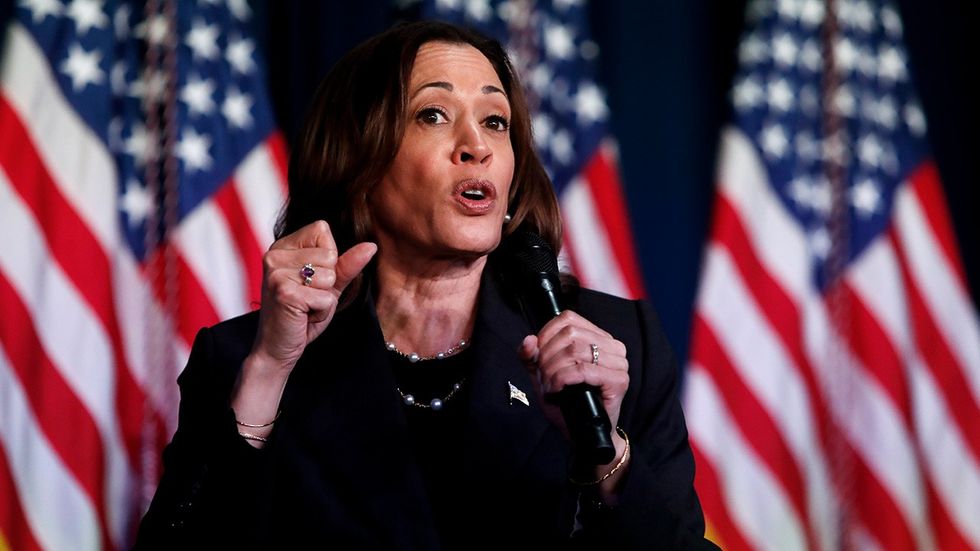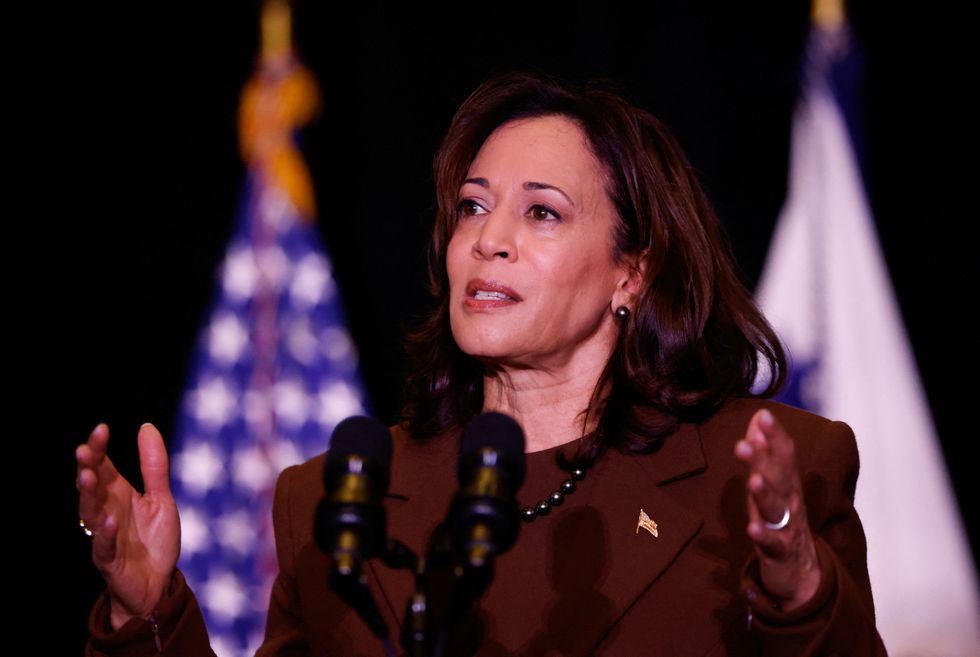Georgina Cutler
Guest Reporter

Kamala Harris has indicated that she is open to discussing slavery repercussions if she become US President.
The Democrat candidate said the country needed "to speak truth about the generational impact of our history".
She cited the legacy of redlining policies and Jim Crow laws as well as slavery.
While speaking to reporters from the National Association of Black Journalists (NABJ) in Philadelphia, the VP suggested she was supportive of using the executive powers to create a commission to study reparations.

"We need to speak truth about the generational impact of our history, in terms of the generational impact of slavery, the generational impact of redlining, of Jim Crow law," she said.
"I think that part of that is studying it to figure out exactly what we need to do."
However, she added that "ultimately" it was a duty for Congress to take up.
She said: "I’m not discounting the importance of any executive action, but ultimately Congress [will have to] because if you’re going to talk about it in any substantial way, there will be hearings, there will be a level of public education and dialogue."
LATEST DEVELOPMENTS:
- JD Vance fears Donald Trump will suffer same fate as Liz Truss: ‘We’re going to have to fight’
- Meghan and Harry set to remain neutral in election after Kamala snub
- Trump blames Harris' ‘Communist rhetoric' for latest assassination attempt
"I think that was part of the spirit behind the Congressional action thus far. To ensure that everyone can participate in this conversation in a way that elevates knowledge about history and the reference points that have, that are the impetus of this conversation."
Harris previously said she supports "some form" of reparations in the past.
However, she has not been specific in what type during the 2024 campaign.
Some states, including New York, Illinois and California, have already made moves to address social inequalities.

Trump has repeatedly focused on Harris’ dual heritage and previously claimed in his own interview with the NABJ that she had only recently "happened to turn black".
When asked if she would be able to win more votes among black men, Harris said: "I think it’s very important to not operate from the assumption that black men are in anybody’s pocket.
"Black men are like any other voting group, you’ve gotta earn their vote.
"So I’m working to earn the vote, not assuming I’m going to have it because I am black".
Find Out More...